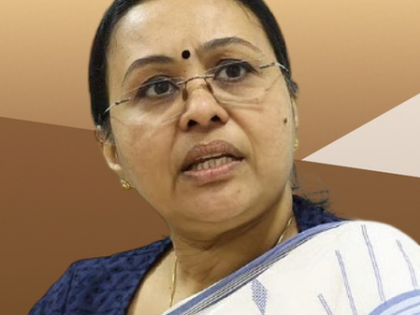With 18 active cases of amoebic meningoencephalitis, Kerala govt to launch 'Clean Water Drive'
By IANS | Updated: August 25, 2025 19:55 IST2025-08-25T19:45:25+5:302025-08-25T19:55:21+5:30
Thiruvananthapuram, Aug 25 With 41 cases of amoebic meningoencephalitis reported this year and 18 active cases currently under ...

With 18 active cases of amoebic meningoencephalitis, Kerala govt to launch 'Clean Water Drive'
Thiruvananthapuram, Aug 25 With 41 cases of amoebic meningoencephalitis reported this year and 18 active cases currently under treatment, Kerala Health Minister Veena George, on Monday, urged the people of the state to ensure water sources are kept clean and safe.
Minister George also announced a mass public campaign to prevent the spread of the rare but fatal brain infection.
The campaign, scheduled for August 30 and 31, will see the chlorination of wells and cleaning of water storage tanks across households, hospitals, educational institutions, hostels, and apartments.
The decision was taken at a high-level meeting chaired by the Chief Minister Pinarayi Vijayan.
Local self-government bodies, Haritha Keralam Mission, and the Water Resources Department will jointly lead the campaign, with participation from all health workers and institutions.
Most cases have emerged from Thiruvananthapuram, Kollam, Kozhikode, Wayanad, and Malappuram districts.
Minister George also directed that adequate medicines be stocked and that all resorts, hotels, water theme parks, and swimming training centres ensure proper chlorination and regular testing of water.
Facilities failing to comply will face action under public health laws.
The department also stressed the importance of maintaining public water bodies.
Local bodies have been tasked with cleaning ponds, lakes, and canals, and blocking waste channels leading into them.
Accumulated weeds and waste must be removed to ensure water safety.
People who enter natural water bodies have been advised to take doxycycline tablets as a preventive measure against leptospirosis, under medical guidance.
Health authorities have also issued detailed precautionary measures.
People are advised to avoid swimming or diving in stagnant or untreated water sources.
If entering water is unavoidable, they should use nose plugs or cover the nose with fingers to prevent contaminated water from entering.
Disturbing the mud or sediments in ponds and lakes should be strictly avoided, and those swimming should try to keep their heads above water.
Public swimming pools, spas, and theme parks must be properly chlorinated and maintained, while households have been warned against pouring unboiled or untreated water into the nose.
Water storage tanks and reservoirs should be thoroughly cleaned and scrubbed at least once every three months.
The Health Department emphasised that community level vigilance and strict water hygiene practices are essential to preventing further cases of the disease.
Disclaimer: This post has been auto-published from an agency feed without any modifications to the text and has not been reviewed by an editor
Open in app